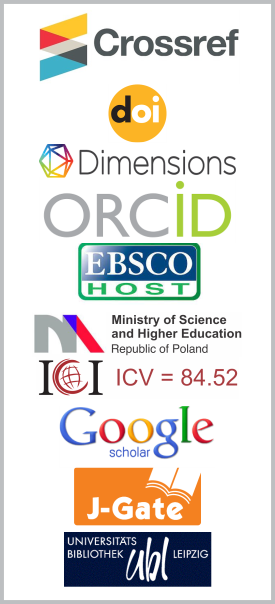Success Factors for Justice Delivery System through E-court Management
DOI:
https://doi.org/10.26713/jims.v9i4.997Keywords:
justice delivery system, courtroom technology, court management, e-court, electronic recordAbstract
Courts of law have embraced technology at a variant pace, from a minimal adoption of word processing to the extreme end of 100% electronic and web-based without a single paper production. Electronic filing system, case management system, hearing scheduling system, hearing recording system and electronic shorthand system used in courts become important tools that allow cases to be dispensed with in an efficient and timely manner. It enables legal practitioners to work anywhere and anytime. These digital technologies also become enablers for legal information to be accessed online by stakeholders. This paper presents five success factors for successful courtroom technology implementation based on a case study conducted in Malaysia. Data was acquired through collected through qualitative field study consisting of site visits, system demonstrations, interviews, series of observation and documents review. The result shows that the five most important success factors are leadership, change management, financial capital, training and piloting.Downloads
Download data is not yet available.
Downloads
Published
2017-12-30
CITATION
How to Cite
Saman, W. S. W. M., Shaifuddin, N., Baba, N., Mokhtar, W. N. H. W., Abdullah, N. C., Ahmad, M., & Hussin, N. (2017). Success Factors for Justice Delivery System through E-court Management. Journal of Informatics and Mathematical Sciences, 9(4), 1227–1235. https://doi.org/10.26713/jims.v9i4.997
Issue
Section
Research Article
License
Authors who publish with this journal agree to the following terms:- Authors retain copyright and grant the journal right of first publication with the work simultaneously licensed under a CCAL that allows others to share the work with an acknowledgement of the work's authorship and initial publication in this journal.
- Authors are able to enter into separate, additional contractual arrangements for the non-exclusive distribution of the journal's published version of the work (e.g., post it to an institutional repository or publish it in a book), with an acknowledgement of its initial publication in this journal.
- Authors are permitted and encouraged to post their work online (e.g., in institutional repositories or on their website) prior to and during the submission process, as it can lead to productive exchanges, as well as earlier and greater citation of published work.




